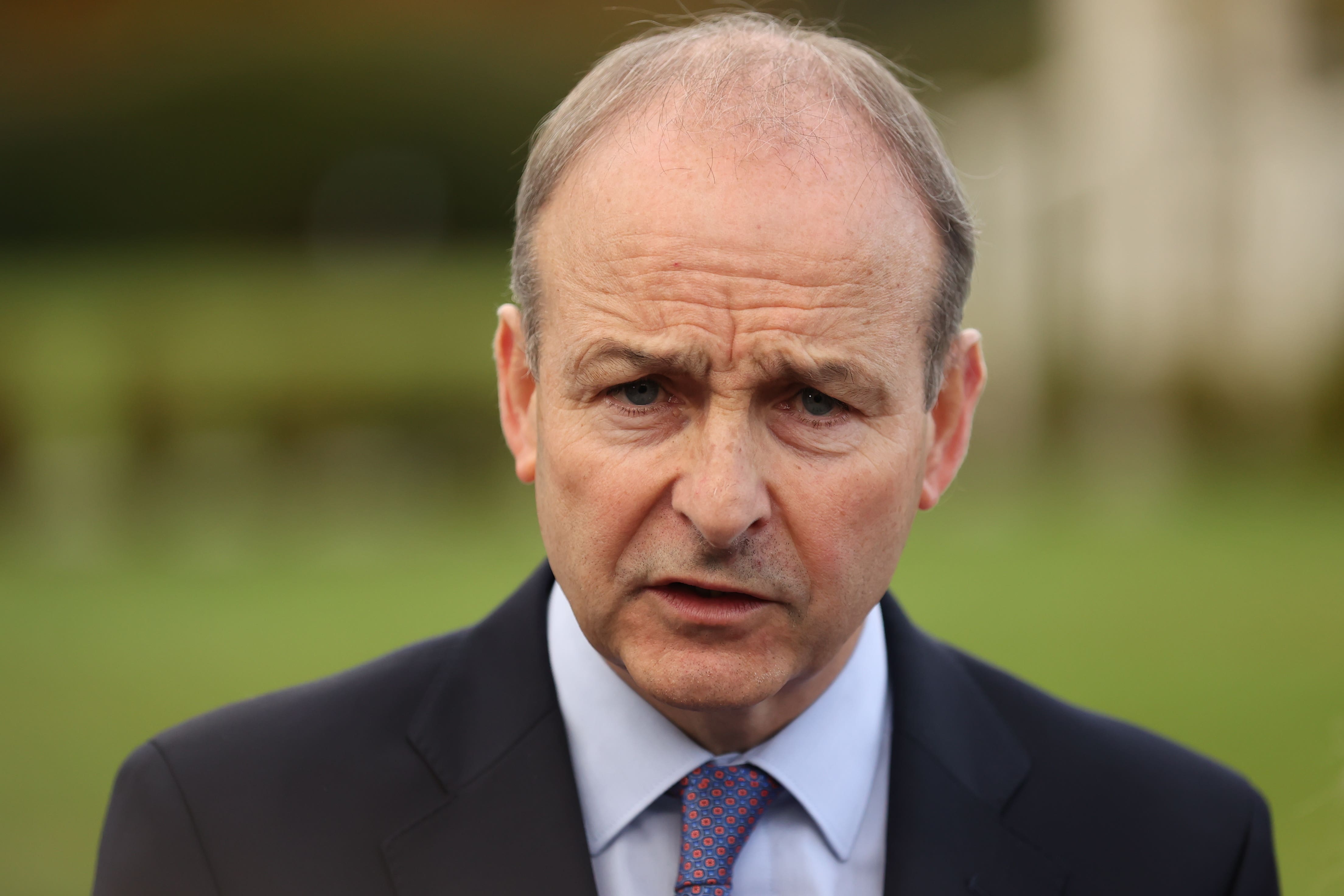Data sharing progress between EU and UK hailed as ‘significant building block’
UK Foreign Secretary James Cleverly and Northern Ireland Secretary Chris Heaton-Harris met European Commission vice-president Maros Sefcovic in London

Your support helps us to tell the story
From reproductive rights to climate change to Big Tech, The Independent is on the ground when the story is developing. Whether it's investigating the financials of Elon Musk's pro-Trump PAC or producing our latest documentary, 'The A Word', which shines a light on the American women fighting for reproductive rights, we know how important it is to parse out the facts from the messaging.
At such a critical moment in US history, we need reporters on the ground. Your donation allows us to keep sending journalists to speak to both sides of the story.
The Independent is trusted by Americans across the entire political spectrum. And unlike many other quality news outlets, we choose not to lock Americans out of our reporting and analysis with paywalls. We believe quality journalism should be available to everyone, paid for by those who can afford it.
Your support makes all the difference.Progress between the EU and the UK on post-Brexit data sharing has been hailed as a “significant building block” to resolve the ongoing row, according to the deputy Irish premier.
Micheal Martin said that while a lot of work remains over the issues, he believes they can be addressed through negotiation between both sides.
UK Foreign Secretary James Cleverly and Northern Ireland Secretary Chris Heaton-Harris met European Commission vice-president Maros Sefcovic in London.
They reached agreement in the area of data sharing and EU access to British IT systems amid friction over the implementation of the post-Brexit arrangements.
Mr Martin is in Brussels for a series of meetings to deal with Brexit matters aimed at fixing the ongoing dispute over the Northern Ireland Protocol.
Among those who he met was Mr Sefcovic.
“Without doubt the agreement on data sharing is a very significant building block. Obviously a lot of work remains to be done and I’ve always believed that issues around the protocol can be resolved through negotiation,” the Irish foreign affairs minister said.
“But I’ve also believed that it’s important to allow both the EU and UK negotiators space and time to get into the detail, to work on the detail of this agreement.
“I think that’s important and I think there’s obviously a journey to travel yet.”
Mr Martin said that all parties in Northern Ireland want to see the political institutions restored.
In February, the DUP withdrew its First Minister from the ministerial executive in protest at the protocol.
The party has repeatedly said it will not return to powersharing until major changes to the protocol have been made.
Mr Martin said that “confidence and trust” is essential to any relationship.
“I think the agreement does signify a sort of growing in trust in the relationship with European Union negotiators and the United Kingdom negotiations, which I think is welcome,” he added.
“Data sharing is obviously a very important issue in terms of reassuring people, building confidence around trading matters, but again it’s a significant building block.
At times it has been torturous, sometimes it has been very difficult and it remains difficult.
“We have to take it step by step. From all of my discussions with the parties in the North, including the DUP, legitimate issues have been raised around the operation of the protocol.
“There are very, very important issues at stake here.
“On a broader level, given the geopolitical challenges facing the world, there is a genuine desire on the EU side and on the United Kingdom side, that the war on Ukraine, the energy crisis that we’re experiencing and other issues, really can make it very important that that relationship between the UK and the EU is on a new plane, that is constructive and positive.”
Asked if he believed whether the Northern Ireland Assembly will be restored before the 25th anniversary of the Good Friday Agreement, Mr Martin said: “One can never be convinced about anything to do with this issue.
“At times it has been torturous, sometimes it has been very difficult and it remains difficult.
“There’s still a lot of work to be done, so I detect a tentative sort of approach to this. Both sides are very conscious of the difficulties that have set this whole area.
“I think people are very cautious, correctly so in my view, and that’s why I think we do need to give space to the EU and UK negotiators, to allow them to space to to go through all of the issues in great detail and hopefully then to arrive at a landing zone.”
Meanwhile, the Irish premier Leo Varadkar described the “breakthrough” data-sharing deal deal as “very positive progress after over a year of no progress at all”.
“I very much welcome that development,” he said.
“I think it does open the door to further revisions on how we can make the protocol more workable and more acceptable.
“Those negotiations and those talks are really only just underway. We’ll be traveling to Northern Ireland, myself, on Thursday for the chance to meet with all the parties and hear what they have to say.
“I’m also scheduling phone calls with the Prime Minister and also with (European Commission) President (Ursula) von der Leyen.”
He added that he is hoping to speak to British Prime Minister Rishi Sunak this week, and said these engagements will give “a better sense as to whether we’re closer to a comprehensive agreement or not”.
“The Tanaiste is in Northern Ireland as well, and with key European stakeholders, so we’re going to compare notes, if you like, tomorrow night and work on this jointly over the next couple of weeks,” Mr Varadkar added.